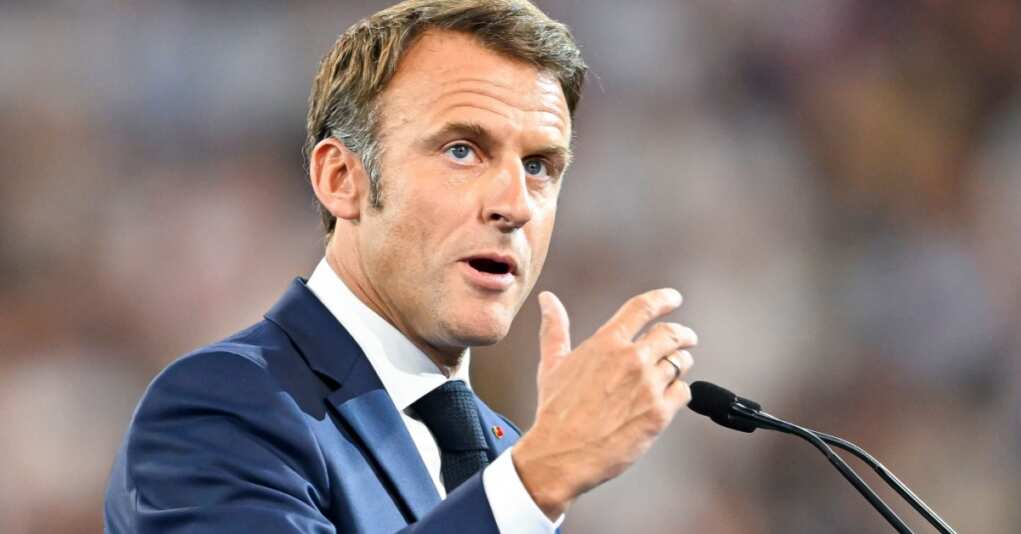Macron’s New Pen Pal: France Rolls Out the Red Carpet for Syria’s Fresh Face

In a diplomatic twist that could make even the most seasoned political observers do a double-take, French President Emmanuel Macron has extended an invitation to Syria’s newly minted interim president, Ahmed al-Sharaa, to visit France in the coming weeks. Yes, you read that correctly. The leader of the nation formerly under the iron grip of Bashar al-Assad is now being courted by the Élysée Palace. One can’t help but wonder if this is a case of ‘keep your friends close and your enemies closer,’ or perhaps just a bold new chapter in international relations.
According to a statement from the Syrian presidential office, Macron congratulated al-Sharaa on his recent ascent to power and expressed France’s commitment to lifting economic sanctions to facilitate Syria’s recovery. The two leaders also discussed the ongoing fight against terrorism—a topic that, given Syria’s tumultuous history, is as complex as a Rubik’s Cube wrapped in a mystery inside an enigma.
For those not keeping score at home, Ahmed al-Sharaa, formerly known by his nom de guerre Abu Mohammed al-Jolani, was appointed interim president after a lightning offensive led by his Islamist group, Hayat Tahrir al-Sham, toppled the Assad regime in December. This development has left many in the international community scratching their heads, wondering if this is a genuine move toward stability or just another reshuffling of deck chairs on the Titanic.
Macron’s invitation marks the first direct engagement between a European leader and Syria’s new administration. It’s a bold move, reminiscent of a high-stakes poker game where Macron is either bluffing with a weak hand or holding a royal flush. Time will tell which is true.
The French president’s office stated that he ‘took the initiative’ to call al-Sharaa, expressing hope that the transitional process will ‘fully meet the aspirations of the Syrian people.’ It’s a noble sentiment, but given the region’s history, one might be forgiven for harboring a healthy dose of skepticism. After all, the road to hell is paved with good intentions—and, apparently, diplomatic phone calls.
Al-Sharaa, for his part, has been on a diplomatic whirlwind tour, meeting with leaders in Saudi Arabia and Turkey. His upcoming visit to France would be his first to a Western nation since assuming power. One can only imagine the conversations over croissants and café au lait as these leaders navigate the labyrinthine complexities of Middle Eastern politics.
Critics might argue that Macron’s overtures are premature, given the nascent nature of Syria’s transitional government and al-Sharaa’s controversial past. However, proponents could counter that engaging with new leadership is a pragmatic approach to fostering stability in a region that has seen more than its fair share of turmoil. It’s a classic case of ‘damned if you do, damned if you don’t,’ with no easy answers in sight.
As the international community watches with bated breath, the upcoming meeting between Macron and al-Sharaa could signal a significant shift in diplomatic relations. Or it could be just another footnote in the long, convoluted history of Middle Eastern politics. Either way, it’s clear that the geopolitical chessboard is being rearranged once again, and only time will reveal the true implications of this high-stakes gambit.
